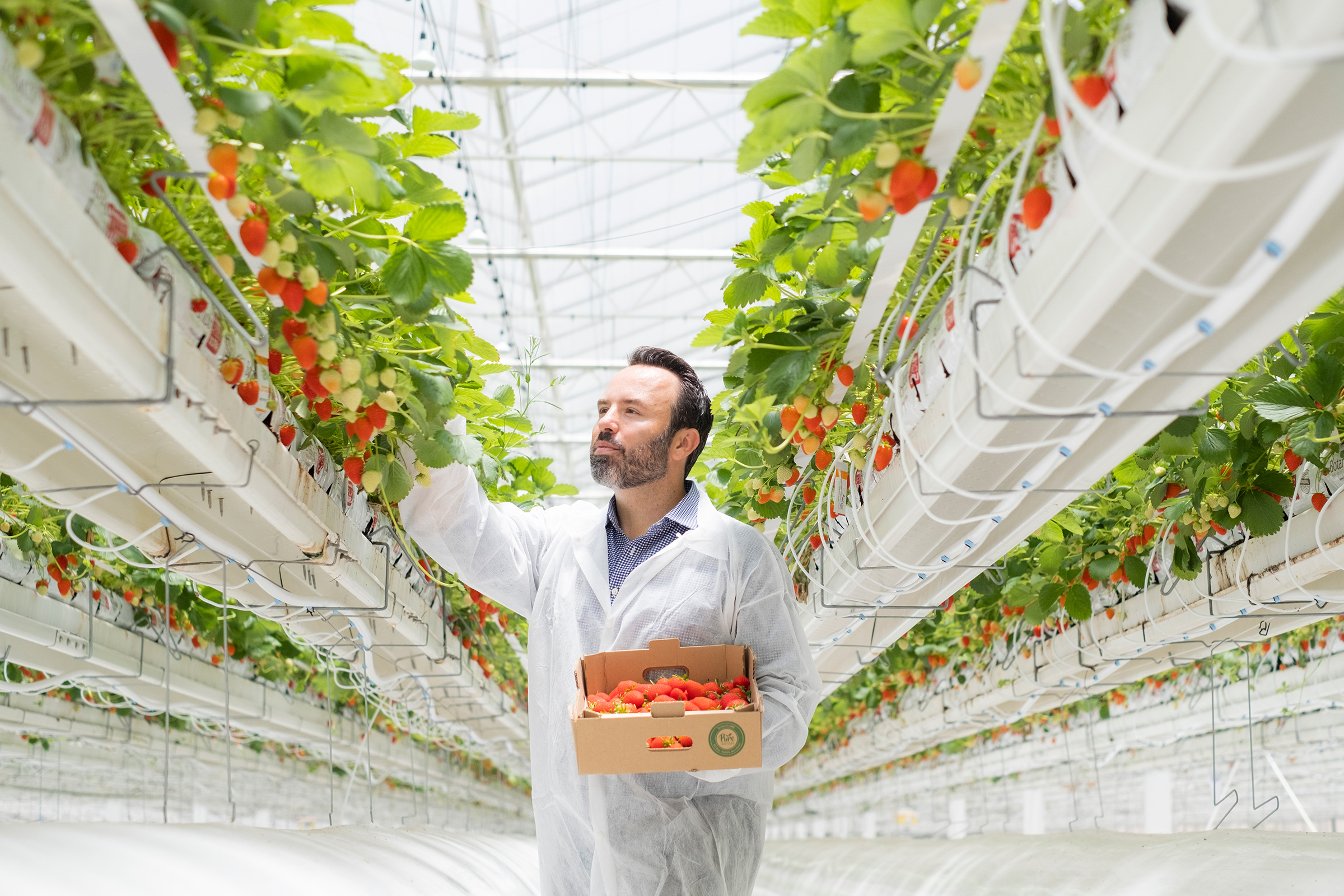Sky Kurtz farms in the desert. The co-founder and CEO of Pure Harvest Smart Farms—located outside Abu Dhabi, where temperatures regularly top 113°F—and his team use the challenging environs to trial new crops and technologies that have the potential to change farming in climate-challenged areas. Pure Harvest also provides produce to supermarkets and restaurants in Dubai and across the region using less water, which is important in one of the most arid regions of the world.
Kurtz founded Pure Harvest Smart Farms in 2017 with his co-founders Mahmoud Adi and Robert Kupstas. Passionate about food insecurity, they spent the first year studying high-tech food–production systems around the world, as well as searching for the optimal site for their first farm.

Kurtz’s farms in the UAE started out with “nothing but a PowerPoint, a pile of dirt, and the promise of what we would do,” says Kurtz. But Pure Harvest quickly proved it was built on more than a promise. The founders’ research and technological innovation led to the development of a proprietary Controlled–Environment Agriculture (CEA) system—a combination of high-tech greenhouses and vertical farms that provides a stable year-round climate. The first crop of tomatoes was planted in August 2018 and harvested in October. The company’s original farm is now its R&D facility, and Pure Harvest has expanded its facilities in the UAE to 16 hectares of growing area. It also operates a 6-hectare farm in Saudi Arabia, and is developing a 6-hectare farm in Kuwait.
It now produces 14 types of leafy greens; two varieties of strawberries, with seven more being developed; and almost 30 varieties of tomatoes, the product that started it all. With limited availability of local, seasonal produce, the UAE has typically imported much of its food, often air-freighted, which comes at a high cost, both economically and environmentally. And while they are more expensive compared with locally grown seasonal produce, the company says its fruit and vegetables are typically up to 60% cheaper than air-freighted imports of comparable quality. “I think we’ve fundamentally changed a belief system that said local is worse,” says Kurtz.
Their vision fits in with a wider goal for Dubai to become more self-sufficient, and they have a desire to use their R&D to help tackle the impacts climate change is already having on the food industry in the Gulf region and farther afield. The focus is not just on growing for premium markets but also developing affordable solutions to help democratize access to fresh food.
Kurtz hopes the company’s data-driven technology can become a model for other regions that are experiencing climate stress. “We believe that we can develop a local-for-local solution where it’s needed most, and we’ve battle-tested that capability in one of the harshest environments in the world,” he says.
More Must-Reads from TIME
- Why Trump’s Message Worked on Latino Men
- What Trump’s Win Could Mean for Housing
- The 100 Must-Read Books of 2024
- Sleep Doctors Share the 1 Tip That’s Changed Their Lives
- Column: Let’s Bring Back Romance
- What It’s Like to Have Long COVID As a Kid
- FX’s Say Nothing Is the Must-Watch Political Thriller of 2024
- Merle Bombardieri Is Helping People Make the Baby Decision
Contact us at letters@time.com